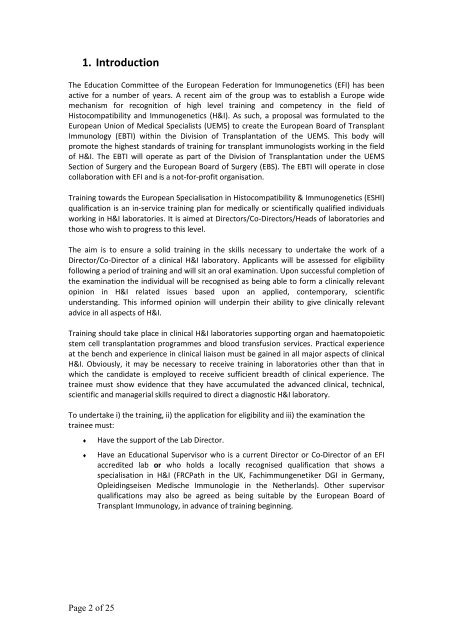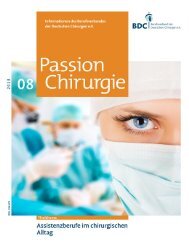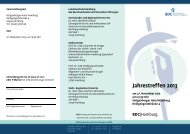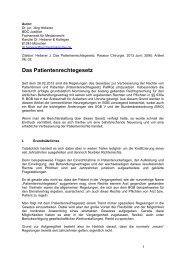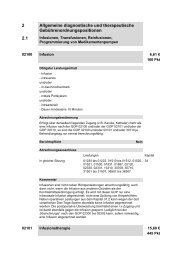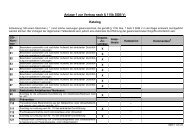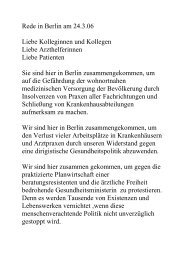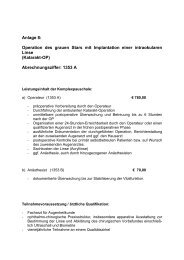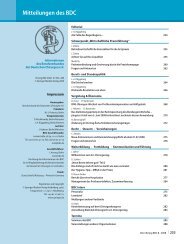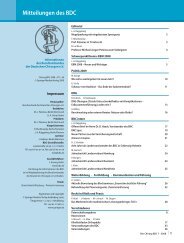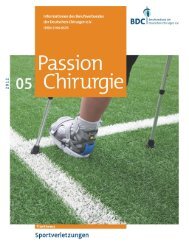(eshi) diploma - BDC
(eshi) diploma - BDC
(eshi) diploma - BDC
You also want an ePaper? Increase the reach of your titles
YUMPU automatically turns print PDFs into web optimized ePapers that Google loves.
1. Introduction<br />
The Education Committee of the European Federation for Immunogenetics (EFI) has been<br />
active for a number of years. A recent aim of the group was to establish a Europe wide<br />
mechanism for recognition of high level training and competency in the field of<br />
Histocompatibility and Immunogenetics (H&I). As such, a proposal was formulated to the<br />
European Union of Medical Specialists (UEMS) to create the European Board of Transplant<br />
Immunology (EBTI) within the Division of Transplantation of the UEMS. This body will<br />
promote the highest standards of training for transplant immunologists working in the field<br />
of H&I. The EBTI will operate as part of the Division of Transplantation under the UEMS<br />
Section of Surgery and the European Board of Surgery (EBS). The EBTI will operate in close<br />
collaboration with EFI and is a not-for-profit organisation.<br />
Training towards the European Specialisation in Histocompatibility & Immunogenetics (ESHI)<br />
qualification is an in-service training plan for medically or scientifically qualified individuals<br />
working in H&I laboratories. It is aimed at Directors/Co-Directors/Heads of laboratories and<br />
those who wish to progress to this level.<br />
The aim is to ensure a solid training in the skills necessary to undertake the work of a<br />
Director/Co-Director of a clinical H&I laboratory. Applicants will be assessed for eligibility<br />
following a period of training and will sit an oral examination. Upon successful completion of<br />
the examination the individual will be recognised as being able to form a clinically relevant<br />
opinion in H&I related issues based upon an applied, contemporary, scientific<br />
understanding. This informed opinion will underpin their ability to give clinically relevant<br />
advice in all aspects of H&I.<br />
Training should take place in clinical H&I laboratories supporting organ and haematopoietic<br />
stem cell transplantation programmes and blood transfusion services. Practical experience<br />
at the bench and experience in clinical liaison must be gained in all major aspects of clinical<br />
H&I. Obviously, it may be necessary to receive training in laboratories other than that in<br />
which the candidate is employed to receive sufficient breadth of clinical experience. The<br />
trainee must show evidence that they have accumulated the advanced clinical, technical,<br />
scientific and managerial skills required to direct a diagnostic H&I laboratory.<br />
To undertake i) the training, ii) the application for eligibility and iii) the examination the<br />
trainee must:<br />
♦<br />
♦<br />
Have the support of the Lab Director.<br />
Have an Educational Supervisor who is a current Director or Co-Director of an EFI<br />
accredited lab or who holds a locally recognised qualification that shows a<br />
specialisation in H&I (FRCPath in the UK, Fachimmungenetiker DGI in Germany,<br />
Opleidingseisen Medische Immunologie in the Netherlands). Other supervisor<br />
qualifications may also be agreed as being suitable by the European Board of<br />
Transplant Immunology, in advance of training beginning.<br />
Page 2 of 25


